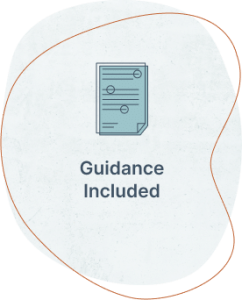As an owner of a legal document template website, I know there is high demand for services like ours. Each year thousands of business customers, whether legally trained, or like me, not, use template websites as a quick and often inexpensive source of contracts and other legal documents. Used correctly, they are a fabulous resource. If relied upon blindly, you expose yourself and your business to unnecessary risk.
Here are five tips for best practice when using legal document template services
#1 Establish where the service is based and who is drafting the legal document templates
Check provenance
Finding the right legal template can undoubtedly save your business time and money. But you need a source of templates you know you can trust.
First, check jurisdiction. This may sound basic, but you’ll be surprised at how many internet-based services, advertising to UK businesses, are American or European companies, whose templates aren’t necessarily written by English qualified and trained lawyers.
Second, check who is drafting. Are they qualified lawyers, with commercial, corporate or employment law experience in legal practice advising their own clients?
Or, are they either unqualified paralegals or recently qualified lawyers with limited post-qualification experience in practice before they moved on?
Being a good legal draftsperson is a specialised skill and along with this, a hefty dose of knowledge and experience is also required to produce quality legal templates. Use expert drafters when you can, in the knowledge that the template company is investing right where you will benefit most – in the legal documents you’re using to protect your business.
#2 Be cautious of promises of easy autofill-in and clause selection
Do some subject research to understand the document you’re using especially if your not legally trained
When we’re pushed for time, what we want most is a quick solution which doesn’t take a huge amount of effort, it’s easy to be drawn into websites with simple marketing-led explanations and promises of auto-completed documents to take away the hassle of having to engage the brain. This writing is designed to hit your pain points and reinforce how buying the document or subscribing to a service will fix your problem, and not really to empower you with a deeper understanding of the document you’re using to aid your informed choice.
Even though it may require some effort on your part to read and engage with legally worded information, you’re better off working with the template services that are content rich, with material written by people who know the law, (ie practising lawyers) and which is free from imprecise non-legal jargon.
If there’s a way to communicate directly with the template service, via live (bot free) chat or email so much the better. Being invited to reach out indicates a reassuringly confident approach and is a good sign of a professional set up.
#3 Check that legal updates are all part of the service
Can you receive legal updates if you want them?
A good template service will offer to notify you of future legal updates that may be relevant to the product you buy. This means you can relax, secure in the knowledge that if there’s something important you need to know about, they’ll be in touch.
In many aspects of corporate and commercial law, this need doesn’t arise very often. It’s probably most relevant to employment law where changes are more frequent.
Some template providers bundle this as a perk in a subscription. Others offer it as a free option at sale as a matter of course.
#4 Get legal advice when you need it
Don’t be afraid to get legal advice if you think you need it
A legal document template company should not be advising you. Legal advice is a protected service in the UK, regulated by the Solicitors Regulation Authority (SRA).
If you are in any doubt at all about how you’ve adapted or completed your document, check with your solicitor. You will still have saved money as your lawyer won’t be starting from scratch and in the process of filling in your template, you will also, hopefully, be clearer on what you are trying to achieve
At Paperrock, we specialise in offering businesses legal document templates drafted by expert corporate and commercial lawyers with extensive experience across a wide variety of industries. Our legal team regularly maintains and reviews our website content to ensure all information remains accurate and up to date.
#5 Remember “Free” offers don’t exist
Beware of free offers and licensing restrictions.
Document access and licensing restrictions will apply to subscription-based template services, requiring you to maintain a subscription in order to access and use the documents you create.
You might not consider this a problem if you are willing to sign up to an expensive long-term all-frills subscription. Take care though if you’re attracted by the offer of a free document or you sign up for a “free trial” in a bid to get something for nothing. This may be a poorly disguised commitment which turns into a subscription to a service after the free trial ends.
There’s no doubt that legal template services can be a useful source of high quality legal documents when you use the right one. Taking a pragmatic and thoughtful approach to what’s available will help to ensure that your business needs are covered.













